Armor Agent Pre-Installation
For customers migrating from another tool or platform, you can reference our documentation for uninstalling Alert Logic Endpoint Protection or Sophos Endpoint Security.
Resource Requirements
*Minimum required for installation. VMs might require more memory per your installation configuration.
Requirement | Windows Instance | Linux Instance |
|---|---|---|
CPU | 2 Cores | 1 Core |
RAM | 2GB | 1GB* |
Disk Space | 3GB | 3GB |
Bandwidth | Estimated 50-100Kb per minute, based on the logs generated in your system. | |
Cronie | For Amazon Linux 2023 only | |
TLS 1.2 is required to install the Armor Anywhere Agent 3.0.
For more information on TLS 1.2, please visit Microsoft's documentation.
Operating System Compatibility
Operating System | Supported Version for 64-bit Environments Only | AWS Graviton |
|---|---|---|
CentOS |
|
|
Red Hat Enterprise Linux (RHEL) |
|
|
Ubuntu |
|
|
Amazon Linux |
|
|
Oracle Linux |
| |
SUSE Linux Enterprise Server |
| |
Windows |
Installing the Armor Anywhere agent for Windows requires Powershell v.3 or higher. | |
Debian |
| |
Alma |
| |
Rocky |
| |
MacOS |
|
For Windows users, in order to run the install script, you will need to ensure your execution policy allows for the execution of scripts.
You can check by executing the following command in Powershell
Get-ExecutionPolicy -ListIf the ExecutionPolicy is set to AllSigned or RemoteSigned for LocalMachine, let's UnBlock it for the script installation by adding the UnBlock command to the installation one-liner
[Net.ServicePointManager]::SecurityProtocol = [Net.SecurityProtocolType]::Tls12; Invoke-WebRequest https://agent.armor.com/latest/armor_agent.ps1 -outfile armor_agent.ps1 ; Unblock-File -Path .\armor_agent.ps1 ; .\armor_agent.ps1 -license 1AAAA-AAAAA-AAAAA-AAAAA-AAAAA -region us-westLinux Kernels Compatibility
This document lists the specific Linux kernels supported for each Linux Operating System and Architecture:
Trend Deep Security 20.0 Supported Linux Kernels
Armor agent server upgraded to the latest version of an operating system
When the operating system on an Armor Agent server is upgraded, the Armor backend does not immediately sync with the new version. As a result, both Nexus and the legacy Armor Management Portal (AMP) may continue to display the previous operating system version until the sync is completed.
Armor recommends running the Toolbox task from Nexus or the legacy Armor Management Portal (AMP) to update the latest version of the upgraded operating system:
In Nexus:
Access the Toolbox:
Log in to Nexus.
In the left-side navigation panel, hover over on Security Posture
 .
. Under the Endpoint section, select Toolbox.
Schedule the Update Task:
Click SCHEDULE TASK.
From the Product drop-down menu, select Agent Related Commands.
From the Operation drop-down menu, select Update Operating System Name.
Identify the upgraded VM using the Select VMs finder.
Click Schedule Task to proceed.
Verification:
Once the task is completed, it may take up to 15 minutes for the latest operating system version to be displayed in the AMP portal.
If you are using the Armor Management Portal (AMP):
Access the Toolbox:
Log in to the Armor Management Portal (AMP).
In the left-side navigation panel, click on Infrastructure.
Under Management select Toolbox.
Schedule the Update Task:
Click SCHEDULE TASK.
From the Product drop-down menu, select Agent Related Commands.
From the Operation drop-down menu, select Update Operating System Name.
Identify the upgraded VM using the Select VMs finder.
Click Schedule Task to proceed.
Verification:
Once the task is completed, it may take up to 15 minutes for the latest operating system version to be displayed in the AMP portal.
Browser Support
Nexus currently supports the following browsers:
Chrome
Firefox
Internet Explorer
Safari
The Armor Management Portal (AMP) currently supports the following browsers:
Chrome
Firefox
Internet Explorer
Safari
Armor cannot guarantee that outdated browser versions will be supported.
Firewall Rules
This topic only applies to Armor Agent for Servers (Armor Anywhere) users.
The following ports will need to be opened for each server registered with Armor.
Traffic | Service | Port | Destination |
|---|---|---|---|
Outbound | Armor Agent |
|
|
Outbound | Vulnerability Scanning |
|
|
Outbound | Log Management (Filebeat / Winlogbeat) |
|
|
Ports that need to be opened for outbound traffic for Malware Protection, FIM and IDS differ by type of Armor customer - Armor Direct (AA & AEC) and Rackspace customers.
In order to provide enhanced security services, we will also be leveraging Trend’s cloud based Vision One product moving forward, instead of Deep Security Manager (DSM). New customers will be onboarded to Trend Vision One - a migration exercise is also currently underway to port over existing customers from DSM to Vision One.
Traffic | Service | Customer type | Port | Destination |
|---|---|---|---|---|
Outbound | Malware Protection, FIM, IDS | Armor Direct |
| Vision One
DNS resolves these URLs:
Deep Security Manager
DNS resolves these URLs:
|
Outbound | Malware Protection, FIM, IDS | Rackspace |
| Vision One
DNS resolves these URLs:
Deep Security Manager
DNS resolves these URLs:
|
For Log Relay, the following additional ports will need to be opened for each server registered with Armor.
Log Relay Services
Traffic | Service | Port | Destination |
|---|---|---|---|
Inbound | Log Relay (Logstash) |
|
|
Outbound | Log Relay (Armor's logging service (ELK)) |
|
|
To verify connectivity to an Armor service endpoint, use the telnet command.
The following example tests connectivity to api.armor.com over 443/tcp:
telnet 75.2.84.73 443For Windows systems without the telnet feature installed, you can also use PowerShell:
new-object System.Net.Sockets.TcpClient('75.2.84.73', 443)Remove Anti-Virus Software
If you intend to use the Anti-Virus module, you must remove any previously installed anti-virus software, such as Trend Micro, SentinelOne, McAfee, etc.
Afterwards, you must reboot your system.
After you install the agent, Armor recommends that you test the connection for each configured firewall rule.
